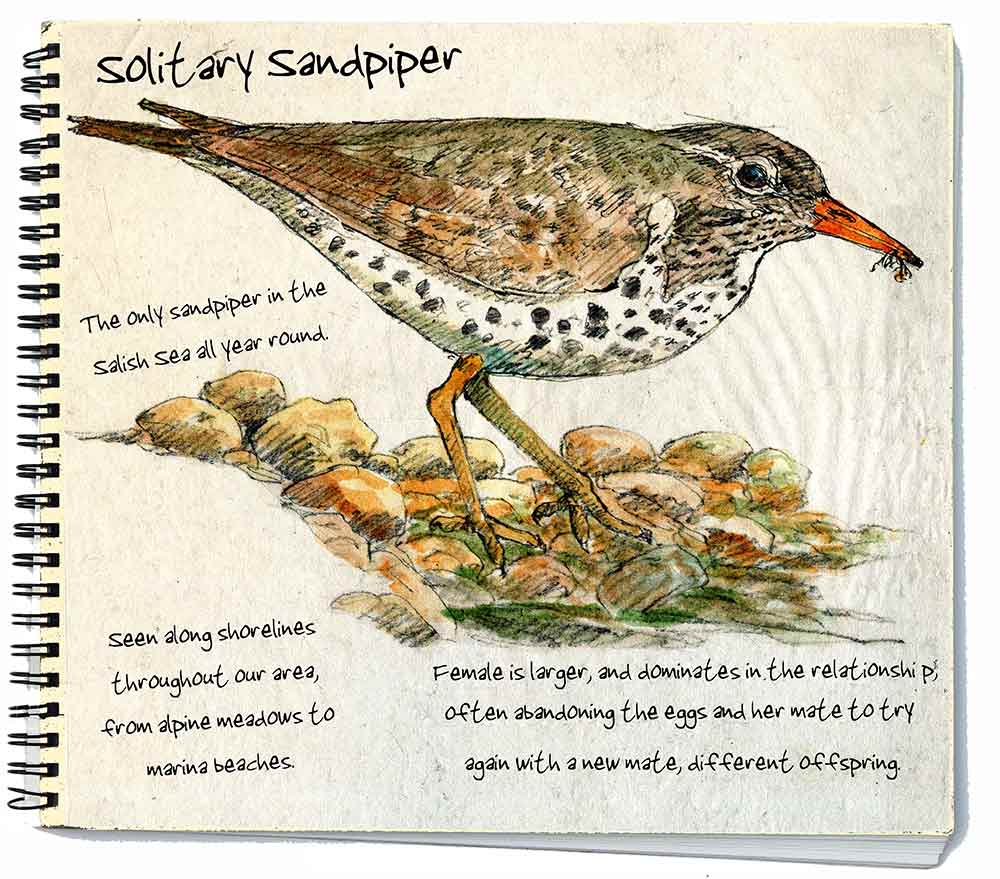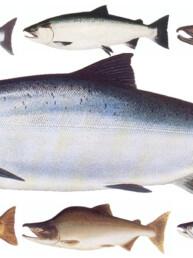This article was originally published in the June 2022 issue of 48° North.

Many species of sandpipers are common during fall, winter and spring as migrants passing through the Salish Sea, but one — the Solitary Sandpiper — is here all year. I see these birds in alpine meadows and along the shorelines of creeks and rivers at sea level, going about their business of foraging for dinner. While most birds of this clan are in the Arctic for summer, the Solitary sort stays around to enjoy summer, too. This is a bird that’s easy to identify. Solitary! Not in flocks. Walks along shorelines bobbing their bottoms up and down, stiff wing-beats and flying very low over water.
What I like about this bird is the female domination of the family. She is the queen, and larger than her mate. And she breeds with more than one male. She stakes out a territory, prances around to attract a suitable partner. Her nest is on the ground next to water and carefully hidden under logs or deep grass; and here she lays four eggs, then immediately just walks off the job to find another mate. She leaves the ‘kids’ to be raised by dad. This goes on for up to four clutches per season and the last she will raise herself. I guess it’s a strategy that works, because there isn’t a shortage of Solitary Sandpipers. Finding one of these small birds can make my day, because it’s a bit of wildness to appreciate. This bird might stay around here where you see it, or, by the end of summer it might be headed to South America for the winter months.
Larry Eifert
Larry Eifert paints and writes about the Pacific Northwest from Port Townsend. His large-scale murals can be seen in many national parks across America, and at larryeifert.com.






